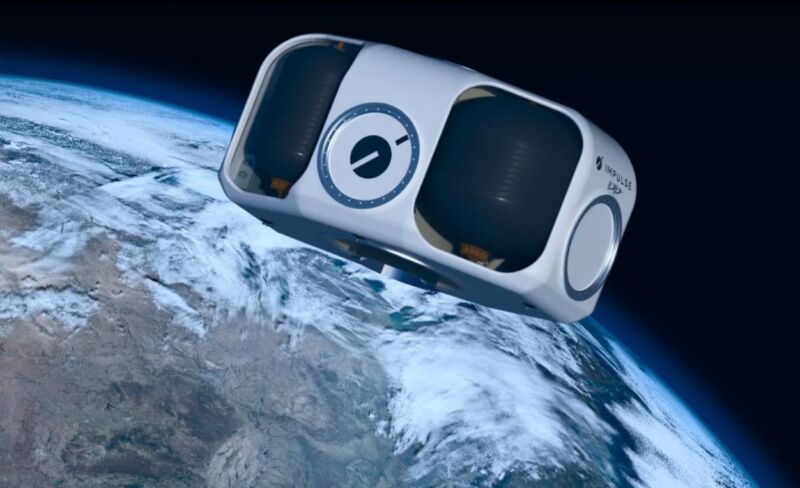

Impulse Space is betting on a future where launch is cheap
source link: https://arstechnica.com/science/2022/03/impulse-space-is-betting-on-a-future-where-launch-is-cheap/
Go to the source link to view the article. You can view the picture content, updated content and better typesetting reading experience. If the link is broken, please click the button below to view the snapshot at that time.
Moving things around —
Impulse Space is betting on a future where launch is cheap
"What happens to space if the cost of access to space is essentially free?"
Eric Berger - 3/29/2022, 1:00 PM

Impulse Space announced Tuesday that it has raised $20 million in seed funding, led by the venture capital firm Founders Fund. The in-space propulsion company, started by noted rocket scientist Tom Mueller, plans to use the funding to accelerate growth as it moves toward delivering its first orbital transfer vehicle.
Mueller was the first employee Elon Musk hired at SpaceX. There, Mueller led the development of the Merlin rocket engine and helped build a world-class propulsion department. In recognition of how SpaceX is changing access to space, Mueller's new company seeks to capitalize on a future where launch costs are substantially lower.
Founded last September, Impulse Space will initially seek to provide "last mile" delivery services for satellites launched as part of rideshare missions, likely including on SpaceX's workhorse Falcon 9 rocket. Eventually, the company plans to expand its in-space transportation services to geostationary space, the Moon, and beyond.
Doing more in space
Impulse Space presently has about two dozen employees, said Barry Matsumori, who recently joined as the company's chief operating officer. With the new funding, the El Segundo, California-based company will now seek to grow rapidly as it moves from its startup phase as a technology incubator into a full-fledged commercial business. Like a lot of the company's employees, Matsumori previously worked at SpaceX. He was a senior vice president of sales and business development at the rocket company from 2011 to 2015.
With his new company, Mueller has made it clear that he wants to move on from rocket engines that launch from Earth and to develop propulsion systems optimized for the vacuum of space. While the company is not ready to discuss its specific technology, the goal is to deliver the most delta-V capability in the most efficient manner. Impulse Space released a teaser video on this earlier this month.
Advertisement
Given their background at SpaceX, the leaders of Impulse Space fully believe the launch company will ultimately realize its goal of a large, fully reusable rocket in Starship. And they recognize that the launch industry is changing in response to this. Matsumori was an advisory board member at Relativity Space for three years, a company that is also seeking to build the fully reusable rocket with its Terran R vehicle. Future versions of Blue Origin's New Glenn rocket will also likely have a reusable first and second stage.
"This is fundamental for us," Matsumori said. "The cost per kilogram, across the board, is going down, especially with the vehicles that are coming. And Starship is certainly coming. The balance between what you launch from Earth versus what you do in orbit is starting to shift. That really means that you're going to do more in space."
Efficient transportation
Impulse Space will seek to complement these launch services with sustainable delivery in space, using green propellants and having vehicles with de-orbit capability. Matsumori said the company recognizes that if tens or hundreds of satellites will be launching on these heavy-lift rockets, they're going to need to reach different orbits and have different purposes.
"One of the things I've always thought about, even going back to my SpaceX days, is what happens to space if the cost of access to space is essentially free?" Matsumori said. "What can one imagine happening to the space economy? And the answer is that there are some capabilities before that were challenging, such as pharmaceuticals, or materials, or semiconductors. If the cost of access gets that low, then these industries are possible."
The company's initial business strategy involves low Earth orbit, but it envisions the need for sustainable transportation from the Earth to the Moon—in the form of a tug—and the storage and movement of propellant in both low Earth orbit and the lunar environment. Once a company mines a space resource, after all, it will have to go somewhere.
Recommend
About Joyk
Aggregate valuable and interesting links.
Joyk means Joy of geeK